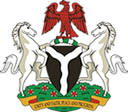Key Highlights
In Q2 2024, total capital importation into Nigeria stood at US$2,604.50 million, higher than US$1,030.21 million recorded in Q2 2023, indicating an increase of 152.81%. In comparison to the preceding quarter, capital importation declined by 22.85% from US$3,376.01 million in Q1 2024.
• Portfolio Investment ranked top with US$1,404.70 million, accounting for 53.93%, followed by Other In vestment with US$1,169.97 million, accounting for 44.92%. Foreign Direct Investment recorded the least with US$29.83 million (1.15%) of total capital importation in Q2 2024.
• The Banking sector recorded the highest inflow with US$1,123.95 million, representing 43.15% of total capital imported in Q2 2024, followed by the Production/Manufacturing sector, valued at US$624.71 million (23.99%), and Trading sector with US$569.22 million (21.86%).
• Capital Importation during the reference period originated largely from the United Kingdom with US$1,120.15 million, showing 43.01% of the total capital imported. This was followed by the Nether lands with US$577.82 million (22.19%) and the Republic of South Africa with US$255.98 million (9.83%).
• Out of the three states that recorded capital importation during the quarter, Lagos state remained the top destination with US$1,367.84 million, accounting for 52.52% of the total capital imported. Abuja (FCT) followed with US$1,236.64 million (47.48%), and Ekiti state with US$0.0003 million.
• Citibank Nigeria Limited received the highest capital importation into Nigeria in Q2 2024 with US$818.46 million (31.43%), followed by Standard Chartered Bank Nigeria Limited with US$654.79 mil lion (25.14%) and Rand Merchant Bank Plc with US$488.59 (18.76%).
Data source: National Bureau of Statistics
INFOGRAPHICS



